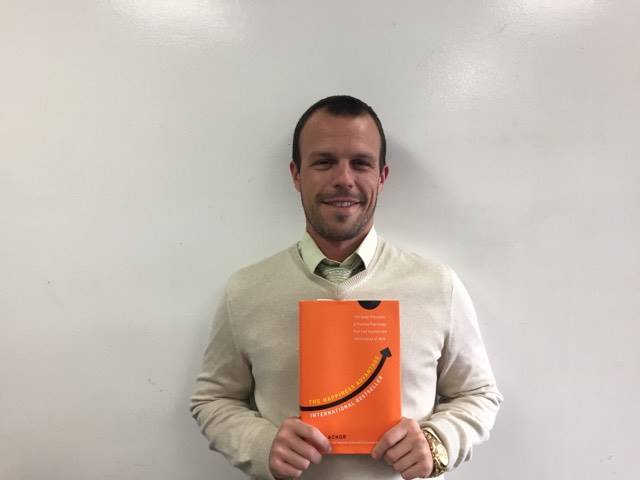Michael Schulman
Staff Writer
Milken has officially made the commitment of providing Positive Psychology education to the Milken community. Centering around the idea of teaching students how to become the best versions of themselves, the goal of positive psychology is to help Milken students flourish. Positive Education on campus will take place through two elective courses, advisory programing, and seminars for teachers. Positive Psychology aims to answer a very complex question: how do we extract the best out of students, and help them flourish in the process?
In 2010, Positive Psychology and Positive Education coordinator and teacher of social science, Dr. Nick Holton began his graduate level research by looking for a tangible way of bringing the best out of students and stumbled upon the idea of positive education. As Dr. Holton began conducting positive psychology research at Milken, Dr. Tal Ben-Shahar, Israeli professor of Positive Psychology at Harvard University, came to speak at Milken to 200 faculty members. Coincidentally, Dr. Holton was studying Positive Psychology at the same time
“The administration was really impressed by the idea of positive psychology,” explained Dr. Holton. “It was almost like it was meant to be.”
The Positive Psychology elective is a brand new course at Milken, and by the end of the year 15% of Milken will have taken the course. However, it is far from a typical high school class. When asked what is the hardest part about teaching the class, Dr. Holton responded that “Positive Psychology is the antithesis of grading.” The class is not like other classes because students are not tested through conventional essays or formal exams. The goal of the course is to teach students effective ways to deal with negative thoughts. Dr. Holton will then track each student’s progress as they try to raise their baseline of happiness.
“People go through waves of happiness, but it is our job to show students how to manage those hard times,” says Dr. Holton.
However, students do not have to be in the class to receive the benefits of Positive Psychology. Beyond advisory programming, Milken plans to provide weekly meditations, yoga sessions, and other healthy tools for students to reach states of mindfulness.
Additionally, for the past two summers, 50 Milken faculty members have had the opportunity to take a positive psychology seminar taught by a colleague of Dr. Ben-Shahar. One attendant, Jewish Studies Department Chair Mr. Bill Cohen, says of his experience during the seminar, that he thoroughly enjoyed the experience, but was particularly fascinated with teacher’s ability to use “over 25 years of research and science to support the key ideas and themes they were teaching.” All the faculty in the workshop made an effort to incorporate what they learned into their own lives and their classes. Specifically, Mr. Cohen integrates Positive Psychology into his spiritual practice “Learn, Discover, Connect” where students discuss spiritual issues.
When asked if Positive Psychology connects to Judaism, Mr. Cohen explained that the “key components and ideas of Positive Psychology heavily agree with the main tenets of Judaism.” More specifically, the idea of writing everything down in a journal that they are grateful for is a “very Jewish idea.” Mr. Cohen also explained that “the goal of Positive Psychology is to help people flourish” which he believes is also the goal of Jewish Studies.
Beyond educating students and faculty, Milken also plans on educating parents in the Milken community. Director of Counseling, Mrs. Whitney Fisch, says that she sees Milken as more than just a school, but a “community resource for parents.” She went on to say that her goal is to give “parents the tools to teach their children positive coping skills so that they will be able to persevere through challenges.” This year, Milken invited professor and author of the book The Myths of Happiness, Dr. Sonya Lyubromirsky to speak to parents at the Health and Wellness evening event. “Dr. Lyubromirsky teaches us that parents have a responsibility to model healthy habits and positive thinking, because this will have tremendous impacts on their children,” explained Mrs. Fisch. She believes that one of the best ways to create positive students starts with family bonding. When asked what families can do to create a positive space within their own home, Mrs. Fisch recommends that “families eat dinner together at least three times a week.” This may sound like a small, easy task, but Mrs. Fisch says it can have “tremendous impacts.”
As Milken continues the launch year of this brand new program, Dr. Holton and the rest of the faculty have high expectations for the program: “Our goal is to change American education, and for Milken to be a leader in Positive Psychology,” explained Dr. Holton. While an ambitious project, the Positive Psychology program is clearly extremely well-planned and sure to make an impact in the Milken community.



